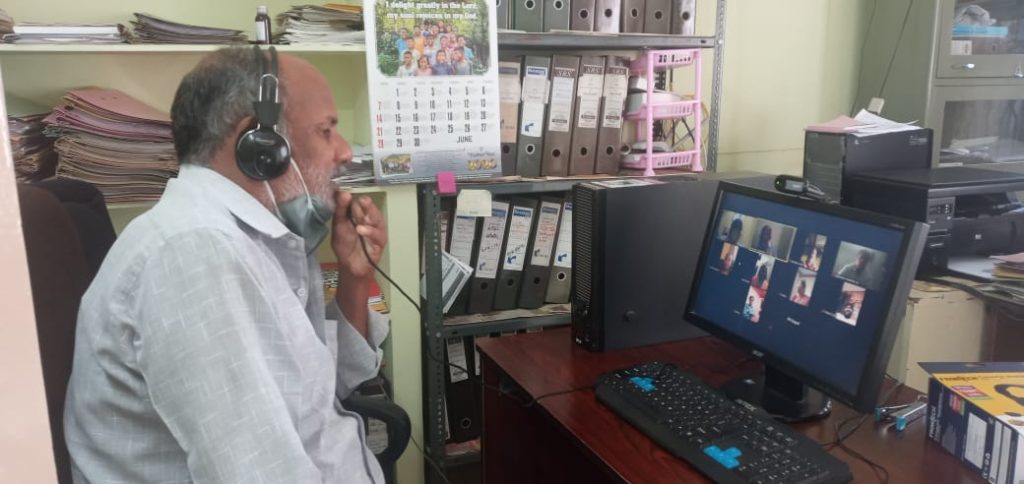
The Online meeting conducted in the date of 12th June 2020 from the APAL head office in Hyderabad
Introduction: The COVID-19 pandemic has deeply impacted the lives of persons affected by the
disease. In response to this upheaval, the Association of People Affected by Leprosy (APAL) conducted a trial version of a board members’ online meeting on 12th June 2020, 11 am to 12 am to address key challenges during the India health crisis and spearhead the leprosy community’s emergency response. This online meeting was very useful to us to better understand the challenges of people affected by leprosy from all states of India.
The president of APAL, Mr. Narsappa asked a question to board members at that particular time that, what is the current COVID-19 situation of people affected by the disease of leprosy in all our states of India?
The board members of APAL have raised so many issues consistently, across India, as major concerns for persons affected during the COVID-19 pandemic: In most states, our APAL leaders represented and supported food aid and other key social protection services are reaching some persons affected, but many are unable to benefit from it because of structural barriers, transportation challenges, or information gaps. Persons affected are relying on the safety net of services from the Governments and NGOs, but it is unclear who is receiving what, and difficult to ensure that everyone’s needs are being met.
Fundamental goods: Persons affected are facing difficulty obtaining basic goods, especially food, clean water, and soap, masks which are critical to fighting COVID-19 infection. Lost livelihoods and travel restrictions have made it difficult to obtain food for many persons affected, and many communities of persons affected have not had access to clean water. The Government and local NGOs are supported by some food grains, soaps, and masks to the people affected by leprosy those who are residing in the leprosy colonies.
Health care: Persons affected have specific and ongoing leprosy-related healthcare needs. If persons affected can reach health facilities, they face reductions in services, as facilities transition to exclusively treating COVID-19 patients. MDT is largely still available, but reaction treatment is unobtainable for many persons affected. Unfortunately, in the states of Maharashtra and Andhra Pradesh, 5 affected people are infected by Coronavirus and 1 person was dead.
Livelihoods: Persons affected often work in the informal economy. They are surviving only depending on begging, working as daily laborers, or running small shops but they lost all their livelihoods. As a result, many persons affected are unable to work and their ability to meet basic needs is in severe jeopardy.
Information about COVID-19: Health promotion information is reaching some personal organizations and some local NGOs are working to find alternative ways to get messages to those that need them. Most people haven’t smartphones and newspapers also banned them.
Intersecting vulnerabilities: Persons affected are not only vulnerable because of their status as a person that is affected by leprosy, but is often vulnerable for other reasons as well. These other factors, like age or gender, compound the challenges faced by persons affected during this time and deserve special attention.
